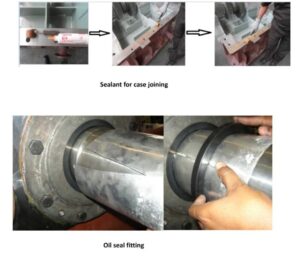Mobile:+86-311-808-126-83
Email:info@ydcastings.com
impeller submersible
The Impeller Submersible A Deep Dive into Efficient Pumping Technology
In the world of fluid dynamics, the importance of efficient and effective pumping systems cannot be overstated. One of the remarkable inventions that have transformed various industries is the impeller submersible pump. This groundbreaking technology is designed to operate underwater, providing reliable solutions for moving liquids in environments that are often challenging. This article explores the design, functionality, and applications of impeller submersible pumps, highlighting their significance in modern engineering and industrial operations.
Understanding the Basics
At its core, an impeller submersible pump utilizes an impeller—a rotating component that transfers energy from the motor to the fluid. This action creates a pressure difference that propels the liquid from one point to another, enabling efficient fluid movement. Submersible pumps are characterized by their ability to function while submerged in the fluid they are pumping, making them highly effective in scenarios such as drainage, irrigation, and sewage management.
The impeller design plays a crucial role in determining the performance of the pump. Typically, these pumps feature multiple impeller configurations, including open, semi-open, and closed designs. Each design offers specific benefits, such as improved flow rates or reduced clogging, catering to different fluid characteristics and applications.
Key Advantages
One of the primary advantages of impeller submersible pumps is their high efficiency
. These pumps are designed to operate at significant depths, often submerged in water, which reduces the need for long suction pipes and minimizes energy losses associated with cavitation. The compact nature of submersible pumps also allows for installation in confined spaces, making them ideal for various applications ranging from household drainage systems to large-scale wastewater treatment facilities.Another significant benefit is their versatility. Impeller submersible pumps can handle a wide range of fluids, including clean water, wastewater, and even slurries containing solids. This adaptability is particularly crucial in industries such as agriculture, construction, and municipal services, where different fluid characteristics require tailored pumping solutions.
Applications Across Industries
impeller submersible

The applications of impeller submersible pumps are vast and varied. In the agricultural sector, these pumps are vital for irrigation systems, ensuring that crops receive adequate water supply. They operate effectively in wells, reservoirs, and even in flood control systems, demonstrating their essential role in food production and natural resource management.
In the construction industry, impeller submersible pumps are employed for dewatering applications, especially on construction sites that require groundwater removal. By efficiently managing water levels, these pumps help maintain site safety and ensure that construction activities proceed without interruption.
Furthermore, municipal wastewater treatment plants rely heavily on submersible pumps to manage sewage systems. These pumps help in the collection, transport, and treatment of wastewater, contributing significantly to environmental protection and public health. The ability to handle solids and debris makes impeller submersible pumps particularly effective in these applications, where maintenance of water quality is crucial.
Technological Innovations
As technology progresses, so too does the design and functionality of impeller submersible pumps. Manufacturers are increasingly integrating advanced materials to enhance durability and resistance to corrosion and wear. Innovations such as variable frequency drives (VFD) allow for better flow rate control and energy efficiency, further optimizing pump performance across various applications.
Moreover, the use of smart technology and IoT (Internet of Things) devices is revolutionizing the monitoring and control of submersible pumps. Real-time data on performance metrics and conditions allows operators to respond quickly to potential issues, reducing downtime and maintenance costs.
Conclusion
In conclusion, the impeller submersible pump stands as a testament to engineering ingenuity in fluid transport technology. With their efficient design, versatility, and wide range of applications, these pumps play a crucial role in many industries. From agricultural irrigation to industrial dewatering and wastewater management, the impact of impeller submersible pumps on modern infrastructure and environmental sustainability cannot be overstated. As technological advancements continue to shape the future of this sector, the potential for even greater efficiencies and capabilities in pump design remains promising.
-
Understanding Metal Casting TechniquesNewsApr.02,2025
-
Understanding Exhaust Manifolds for Enhanced Engine PerformanceNewsApr.02,2025
-
The World of Metal FabricationNewsApr.02,2025
-
Key Components for Pump and Turbo EfficiencyNewsApr.02,2025
-
Essential Tools for Automotive Maintenance and RepairNewsApr.02,2025
-
Durable Valve Components for Effective Water ManagementNewsApr.02,2025











